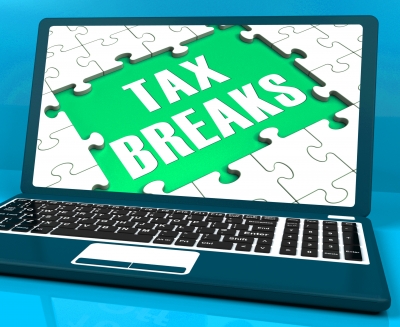Estimated taxes can be one of the trickier sections of the IRS tax code. If you're not subject to income tax withholding or if you own your own business, you may be subject to these taxes. It's best to learn about the requirements for estimated taxes in advance so you can make sure that you're following the law correctly.
How to Pay Your Estimated Taxes: A Guide
Extended Tax Credits for 2013
Many of the current income tax credits and deductions were scheduled to expire at the end of 2012, but the federal government has decided to extend some of these credits into 2013 or longer. The credit extension is good news for several taxpayers, including those with children, those who are employed as educators, and those who take retirement distributions. Here's a look at a few of the tax credits that been extended into 2013.
How to Choose the Right Filing Status on your Tax Return
When you're ready to file your income tax return for this year, one of the most important decisions you'll make is choosing which filing status to use. Your filing status determines several things, including your overall tax rate and your eligibility for certain tax credits. What filing statuses can you use? Which status is best for your financial situation? Do all unmarried taxpayers have to file as single? The answers to these and other questions are provided below.
How to Spot a Bad Tax Preparer
Are you looking for a tax professional that can assist you in preparing your federal income tax return? If so, you might think that most tax preparers are professionals who have been well trained in the Internal Revenue Service tax code. However, some so-called tax preparers may not be truly qualified to handle your return. In fact, there may even be a few scam artists out there masquerading as tax professionals. Here are a few tips to help you learn how to spot a bad tax preparer.
Do Retirees Have to File Income Tax Returns?
Some taxpayers may feel that once they stop earning a regular wage that won't need to file an income tax return. However, there are some tax situations that face older individuals that may still require them to file a federal tax return. The key is understanding the tax filing requirements for retirees so that you can make sure you comply with the tax law.
How to Pay Your Self Employment Taxes
Do you own and operate your own business? Did you have income left over after you subtract your operating expenses and tax deductions? If so, you will have to pay self-employment taxes to the IRS along with your federal tax return. While self-employment taxes represent a significant portion of the government's annual revenue, they also serve a beneficial purpose for the entrepreneurs who pay them. What are these taxes? How does the IRS decide how much you owe? How do you go about paying self-employment taxes?
How to Claim a Home Office Deduction
Do you work out of your home? If so, you may be eligible for a home office deduction on your federal income tax return. In past years, the IRS tended to audit taxpayers who claimed a home office deduction at a higher rate than other individuals, but the agency has since reduced the use of this practice. If you qualify for a home office deduction, now is the time to start claiming your rightful tax break! Here is a primer on claiming a home office deduction.
Save on Your Tax Return: Keep More of Your Hard-Earned Money
Looking for ways to cut your overall tax costs this year? If you're wondering how you can save on your tax return, there are several ways you can reduce both your tax preparation costs and your income tax liability. The key to saving on your taxes is doing your homework in advance so that you can take steps to cut your tax bill throughout the year.
Should You Take the Standard Deduction or Itemize?
It's tax time! If you've been dealing with high tax bills for the last few years, you may be wondering how you can possibly reduce your tax liability this time around. Have you thought about changing which deduction you're claiming this year? The IRS gives taxpayers the option to decide whether to claim the standard deduction or to take itemized deductions. So, should you take the standard deduction or itemize? The answer as to which you should claim depends on your tax filing status and your adjusted gross income for that year.
What is the IRS 10-Year Collection Statute on Tax Debt?
The Internal Revenue Service has sweeping power to collect back taxes from individuals who are delinquent on their accounts. The agency has the authority to place liens on property, seize assets, and freeze bank accounts, all in an attempt to collect back payments. However, there are limits to what the IRS can do to collect due taxes. For example, the agency only has a limited amount of time to pursue collections. There is a limit on IRS tax collections and learning about that timeframe can help you decide how to approach making payments on your account.
SUBSCRIBE VIA EMAIL
POSTS BY TOPIC
- Tax Tips and Help (285)
- IRS Collections (121)
- IRS Audit (72)
- Tax Credits and Deductions (70)
- Tax Resolution (62)
- Business Taxes (54)
- Back Taxes (48)
- Wage Garnishment (21)
- Tax Levies (19)
- IRS Payment Plans (15)
- Tax Liens (14)
- Offer in Compromise (9)
- Unfiled Tax Returns (9)
- IRS Tax Attorneys (7)
- Asset Seizure (6)
- Tax Evasion (6)
- Criminal Tax Defense (4)
- Innocent Spouse Relief (4)
- Alimony (1)











